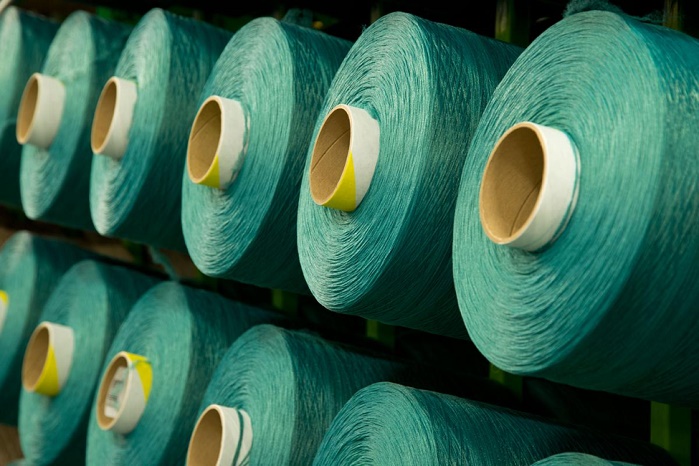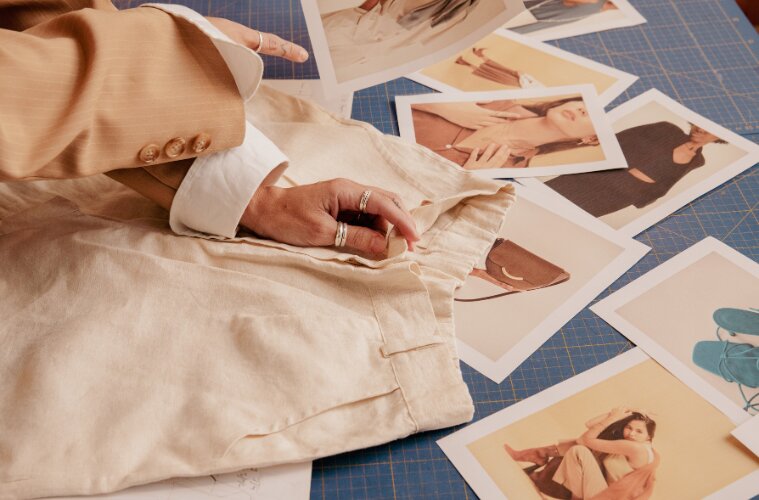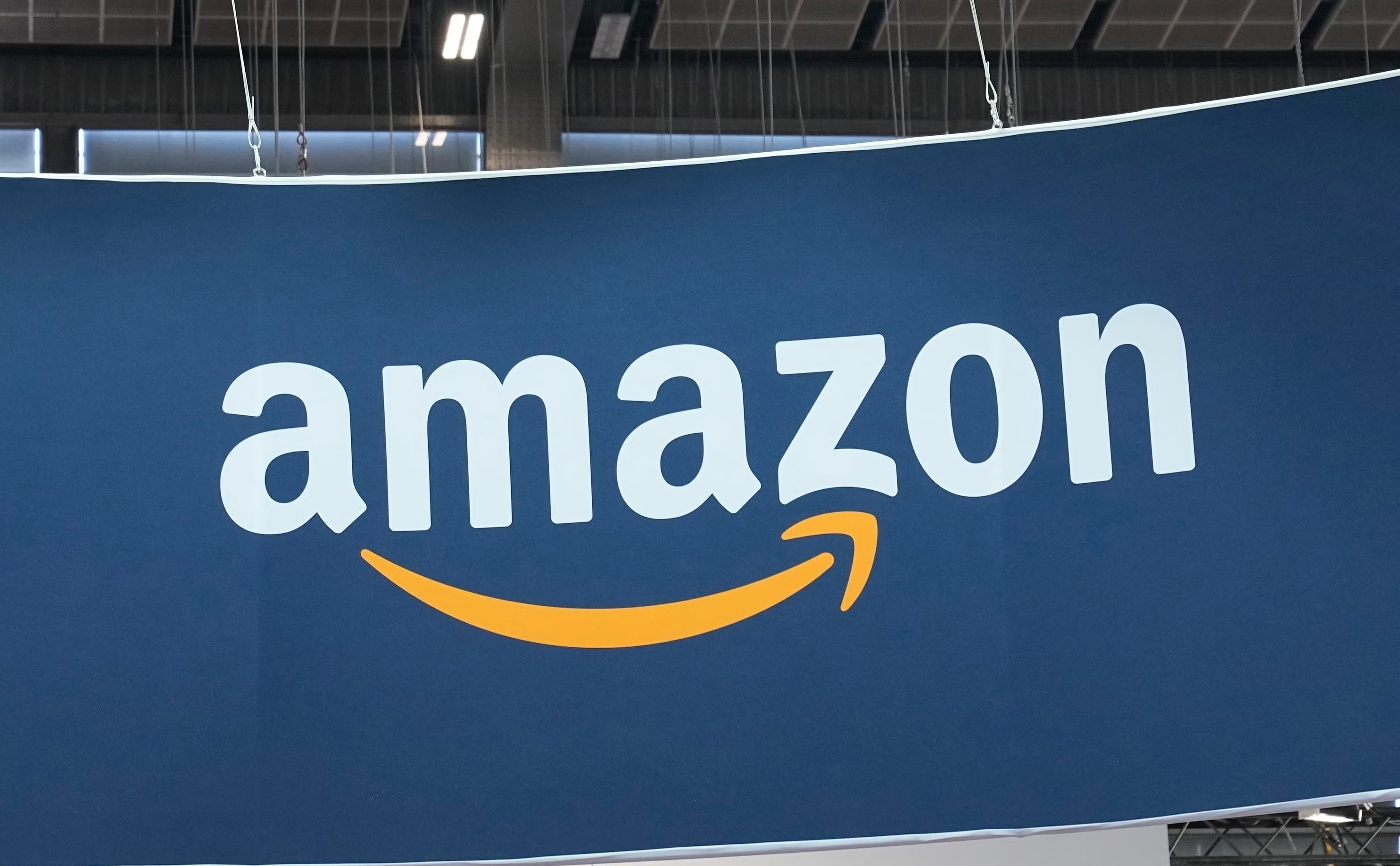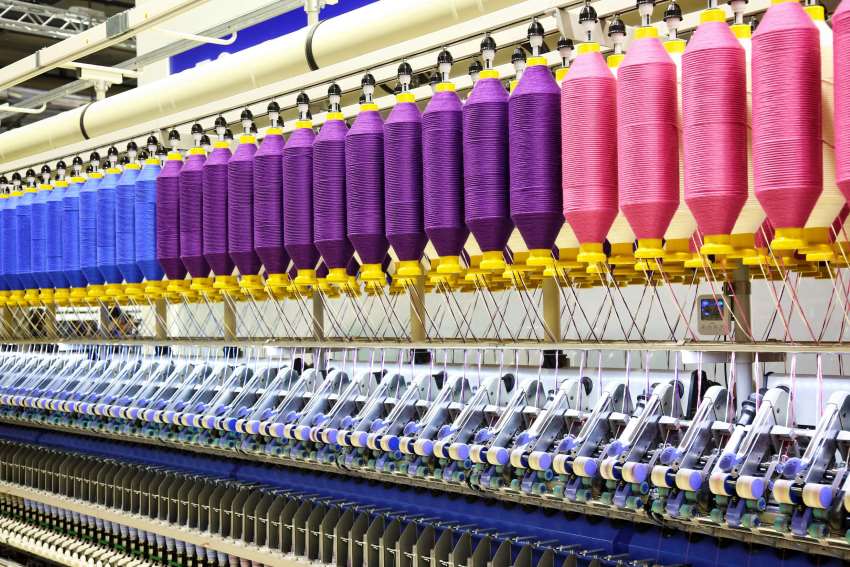FW
Paris-based Kering Group has appointed Raffaella Cornaggia as the CEO of its newly-formed Kering Beauté division. Cornaggia will be reporting to Jean-François Palus, Kering's Group Managing Director, and will join the Group's Executive Committee. Her role will involve developing beauty expertise for Bottega Veneta, Alexander McQueen, Balenciaga, Pomellato and Qeelin.
With over 25 years of experience in the beauty industry, Cornaggia has worked in various roles at L'Oréal, Chanel Parfums Beauté, Estée Lauder, and MAC Cosmetics. She has a proven track record of developing beauty brands on a global scale, which is why Kering sees her as the ideal candidate to lead the Kering Beauté division.
The creation of Kering Beauté will enable the Group to support its brands in developing the beauty category, which aligns with the Group's strategy and market positioning. The aim is to create value for the Group and its brands, leveraging the unique identity of each brand.
Kering is a luxury group that manages the development of several renowned houses in fashion, leather goods, and jewelry, including Gucci, Bottega Veneta, Alexander McQueen, and Pomellato. The Group places creativity at the heart of its strategy, empowering its houses to set new limits in creative expression while ensuring sustainable and responsible luxury.
Pure London, the UK's leading trade fashion buying event, is set to showcase a range of international accessory specialists at Olympia London on 12th-14th February 2023.
The event will feature collections from Landa Bags, Siloa & Mook, Alex Max, Bulaggi, Big Metal, Cotswold Knit, COTI, and Pretty Little Props, among others. The event will also showcase a diverse collection of South African footwear and accessory brands, including Burgundy Collective, Saint & Summer, Fathima Khan Luxury, and more.
According to Gloria Sandrucci, Event Director at Pure London, the event will present brands that lead in sustainability, craftsmanship, and design, capturing the tone of the industry in a compelling showcase.
The Cellulose Fibres Conference 2023 will take place on 8th and 9th March in Cologne and online, bringing together international experts to discuss hot topics in the cellulose fibre industry.
The two-day event will provide an in-depth look into the latest developments in the cellulose fibre sector and feature innovative start-ups, technologies, and novel fibre applications, with a special focus on the textile sector and its shift towards circular economy.
The conference will cover topics from fibre production to recycling, policy, and market trends, with seven sessions covering various aspects of the industry.
The highlight of the conference will be the “Cellulose Fibre Innovation of the Year 2023” award, sponsored by GIG Karasek. Lenzing and LIST Technology are the gold sponsors of the event, while DIENES Apparatebau and Kelheim Fibres are supporting as bronze sponsors.
Trident’s ebitda margin for the third quarter was 17 per cent. The company’s net debt to equity improved in December 2022 from March 2022.
The company has implemented a business-wise federal structure which enables entrepreneurial, agile, and empowered leadership. Further, the textile business has been bifurcated into three individual segments - yarn, towels and bedsheets-- which have enabled the businesses to focus on their respective strengths and efficient optimization of resources.
Trident had earlier announced a capex for capacity addition in yarn, towels, bedsheets and the chemical business for which the projects are under different development and implementation stages. Some 1,93,344 spindles in the yarns segment will be added along with 42 looms in the towels segment and a capacity of 90,000 meters per day in the bedsheets segment.
Based at Ludhiana, Trident is a vertically integrated textile (yarn, towel and bedsheet) and paper (wheat straw-based) manufacturer. Trident’s towel, yarn, bed sheets, and paper businesses have earned global recognition. Trident is one of the largest players in home textiles in India. Supplying national, captive, and retailer-owned brands, the organization is highly decorated with awards from its customers, vendors, and various government entities in recognition of advancing the highest standards in product quality, social responsibility, and environmental stewardship.

The 36th edition of Milano Unica, the Italian trade show for high-end fashion textiles and accessories, saw a positive balance in terms of visitor attendance, particularly from abroad. The show drew in a total of 5,304 visitors, an increase of 47.5% from the February 2022 edition, including 1,500 international visitors (+105%) and 3,804 Italian visitors (+33%).
475 international companies showcased their collections for the Spring/Summer 2024 season at the Fiera Milano Rho, which were met with great enthusiasm by the visitors. The most important export markets for Made-in-Italy textiles recorded significant increases, including Korea, Japan (+423%), the USA (+143%), Great Britain (+77%), Germany (+67%), and France (+32%).
Made in Italy to aim excellence through increased responsibility, traceability
President Alessandro Barberis Canonico commented on the successful edition, saying, “It is a great satisfaction to observe that the exhibitors emphasized the qualitative contribution not only of the services offered, but also of the qualified selection of visitors. The decision to address the topic of traceability during the opening ceremony helped us to highlight that today, the product can no longer be supported only by creativity, but requires a guarantee of excellence through increased responsibility, understood as transparency, authenticity, reliability, and immutability, as well as the expression of the values of social and environmental ethics and Made in Italy production.”
Sergio Tamborini, President of Sistema Moda Italia, was impressed by the outcome of the show and said, “This edition of Milano Unica is definitely positive for the significant attendance and presence of buyers and industry operators, with an important share from abroad. But it is particularly on the product front that we can see important steps forward in terms of high quality going hand in hand with sustainability.”
Role of Italian Trade Agency highlighted
Institutional greetings were given by Luca Palermo, CEO of Fiera Milano; Carlo Capasa, President of the National Chamber of Fashion; Ercole Botto Poala, President of Confindustria Moda, and Maurizio Forte, Director of the Office for Promotion of Made-in-Italy Products at the Italian Trade Agency ITA. Massimo Mosiello, General Manager, concluded the show by acknowledging the contributions of the Italian Ministry of Foreign Affairs and International Cooperation and the Italian Trade Agency ITA, saying, “None of this would have been possible without the invaluable contribution of the Italian Ministry of Foreign Affairs and International Cooperation and the Italian Trade Agency ITA, which have supported us since the first edition.”
Curve New York is a three-day event taking place at the Javits Center in New York, starting from February 5th to 7th 2023.
The show will bring together over 150 lingerie, swimwear, sportswear, and intimate apparel brands, connecting them with buyers, press, and industry influencers. The attendees will have educational sessions on sales and profitability led by experts Larisa Olson, Shelly Domenech, and Debbie Donelle.
The show will also host Fit Bootcamps conducted by Elomi, Freya, Fantasie, and Goddess, and a roundtable discussion on the introduction of men's lingerie in stores, led by Kimmay Caldwell and Roman Sipe of Menagerie.
The event will showcase some of the latest lingerie trends, such as the sheer revolution, where innovations in textiles have resulted in more comfortable and durable see-through nylons, bodysuits, and shapewear, with sports bras even doubling as outerwear. Another trend is elevated style for men and non-women, with innovative brands like Daringly, Skivvies, Tani USA, and Flakes pushing the boundaries in men's underwear with technologically-enhanced, ultra-soft fabrics. The trend of pleasure dressing at home, which has seen consumers deepen their relationships with themselves and dress up for their own enjoyment, will also be featured, with brands like Anita, Aspen Dream, Andine, Calida, and Arlotta showcasing their best work-from-home wear.
Another highlight of the show is dopamine dressing, where brands are bringing out their boldest and brightest colors to boost one's mood. Brands like Kixies, Happy Undies, Thistle and Spire, and Wrapped up by VP are leading the way with mood-boosting designs. The trend of runway-ready lingerie hitting the streets will also be evident, with brands like Entos, Hauty, Coquette, and MADIVA showcasing their innerwear ready to be worn out on the town.
Curve, hosted by Comexposium, is the leading platform for intimate apparel and swimwear in North America
Fashion Designer, Perfumer Paco Rabanne Dies At 88.
Paco Rabanne, born Francisco Rabaneda-Cuervo, was a Spanish fashion designer known for his eclectic and often unwearable designs.
Nicknamed "Wacko Paco" in the 1960s, Rabanne later became famous for his globally popular line of fragrances. He dressed famous figures such as Lady Gaga, Jane Fonda, Brigitte Bardot, and Francoise Hardy and was a co-creator of the 1960s space-age movement in fashion.
Rabanne studied architecture at the Beaux-Arts university in Paris and began his career creating accessories that caught the attention of famous designers like Christian Dior and Yves Saint-Laurent. In 1968, Rabanne signed a deal with the Barcelona-based Puig family, which marked his entry into perfumes.
Rabanne was known for his provocations and eccentric beliefs, including claims of multiple lives, 78,000 years of age, and predictions of Paris' destruction based on the writings of Nostradamus. He was described as a futurist, couturier, mystic, madman, and many more.
“China International Fashion Fair (CHIC) starts the new year with a new date and fresh ideas", said Ms. Liu, the responsible person for CHIC March 2023. "The fair will now take place on 28-30 March 2023 at the National Exhibition and Convention Center in Shanghai and is postponed by around 3 weeks to make it easier for international visitors and exhibitors to enter the country, as almost all entry restrictions have been lifted in China since 8 January."
With over 1,600 exhibitors expected in 5 halls, the clearly structured exhibition segments present big players, up-and-coming designers, and niche brands in areas such as women's wear, men's wear, kid's wear, and accessories. The latest trends in the Chinese market include retro vibes inspired by the 90s and Y2K style, denim suits, wide silhouettes, and a return to mini length. Loungewear and casual streetwear are also on the rise due to the pandemic.
CHIC organizers have invited 150,000 agents for brands, 83,000 buyers, 37,000 online platform visitors, 50,000 wholesale market visitors, and more than 10,000 international visitors. With CHIC Matching, exhibitors and visitors can efficiently and individually network and make new contacts. CHIC also offers comprehensive marketing activities through its CHIC WeChat Public Account and CNGA WeChat Mini Program, among other channels.
A new addition to CHIC is the CHIC Showroom by China World in Beijing, where a curated selection of international brands is being presented to the Chinese fashion scene. The first phase features 10 premium brands from Italy and France, with plans to expand the concept in the future.

Industry analysts are concerned as the country’s textile exports surpassed imports. Recently, there has been a growth in textile imports, driven not just by massive purchases of raw materials such as raw cotton, fabrics, and man-made textiles but surprisingly also of finished products. India, traditionally a major exporter saw its textile and garment imports grow almost t48.8 per cent until November this fiscal from a year ago to $7.2 billion. At the same time outbound shipment of such products dropped 13.4 per cent to $23.1 billion. And officials say, these imports are likely to be over $10 billion in the current fiscal and that’s a record.
PLI, trade deals hope to decrease import dependence
As per a Financial Express report, apparel imports increased 53 per cent to $1.2 billion in the first eight months of last year. This includes around 40 per cent of garment imports from Bangladesh where many Indian companies have set up units over the past 15 years to take advantage of its duty-free access to large markets of the US and EU while another 20 per cent has come from China.
However, experts feel once early investments made under the production-linked incentive (PLI) scheme for textiles bear fruit, the situation will change for the better this fiscal. Moreover, recent trade deals with the UAE and Australia will further improve the situation and the government’s efforts to improve cotton production will also reduce imports of basic raw material cotton in 2023. The current shortage of cotton in the domestic market has not only hiked up the fibre import percentage but harmed production capacity of several units in the value chain. The increase in cotton prices also drove up the import value of both inputs and finished products along with Indian companies getting more garment supplies to India from their manufacturing units in Bangladesh.
Man-made fibers and other causes for export slump
With global consumption pattern currently focussed more on man-made fibers and technical textiles products, many factors such as the dominance of smaller businesses with limited scale manufacturing capacity and inflexible labour rules have affected this segment. Along with this, high logistics costs as well as stiffer competition from Bangladesh and Vietnam in the last decade have been detrimental to this segment.
As per a CCF Group study, India where the main exports are textiles followed by apparel, there has been a slump for five consecutive months leading up to December 2022. Textile products such as cotton and yarn products which account for nearly one-third of the total were down 3.6 percentage points compared with the proportion of the same period last year which was down 12.2 per cent over the same period last year.
From the volume of Indian cotton in the current markets, the 2022-23 Indian cotton yield is lower than expected in the previous period, which is a support for Indian cotton prices. Although downstream demand is relatively weak, it will be further affected by the present high cotton prices and the year ahead doesn’t look too optimistic. With cotton prices remaining high, there is not much significant improvement among its domestic midstream and upstream spinning and weaving mills where the operating rate remains at a low level and also lowers the actual international competitiveness of Indian textiles.
As per the CCF Group study, India’s low textile and apparel exports in 2022 was mainly due to a fall in exports in the second half of the year. What’s more, December stats do not show much improvement either. And the situation may not improve too much in the first quarter of 2023.
Franco Giachetti, founder of Morgan Tecnica Spa, Italy,a leading provider of cutting room solutions for the garment industry, passed away recently.
Giachetti, who studied electronics, was a pioneer in developing efficient and automated cutting room solutions. He founded Morgan Tecnica in 2008 and turned the company into a powerhouse, producing cutting room solutions, roll loading systems, automatic spreaders, table, labellers, and automatic cutters.
Morgan Tecnica also offers smart software for 2D and 3D modelling, product management, and order management. Giachetti was a visionary in the clothing industry and invented several innovative solutions, including the first electronic spreader and the first automatic spreader without clamps.
He had a strong bond with India and opened the company's first foreign branch, GA Morgan Dynamics, in Bengaluru.
Giachetti is survived by his daughter, Federica, who is now the President of Morgan Tecnica, and son, Fabrizio, who is the CEO of the company.












